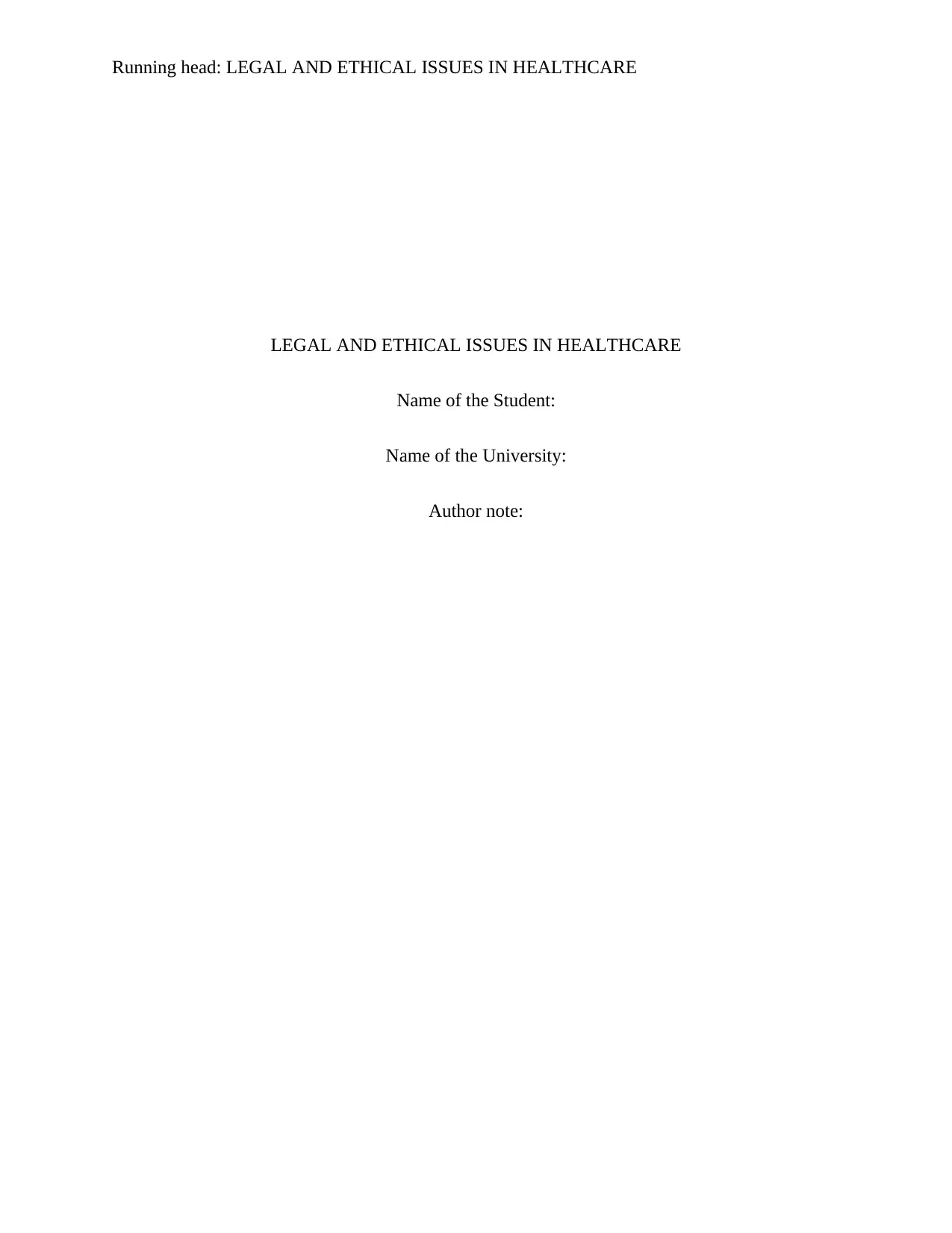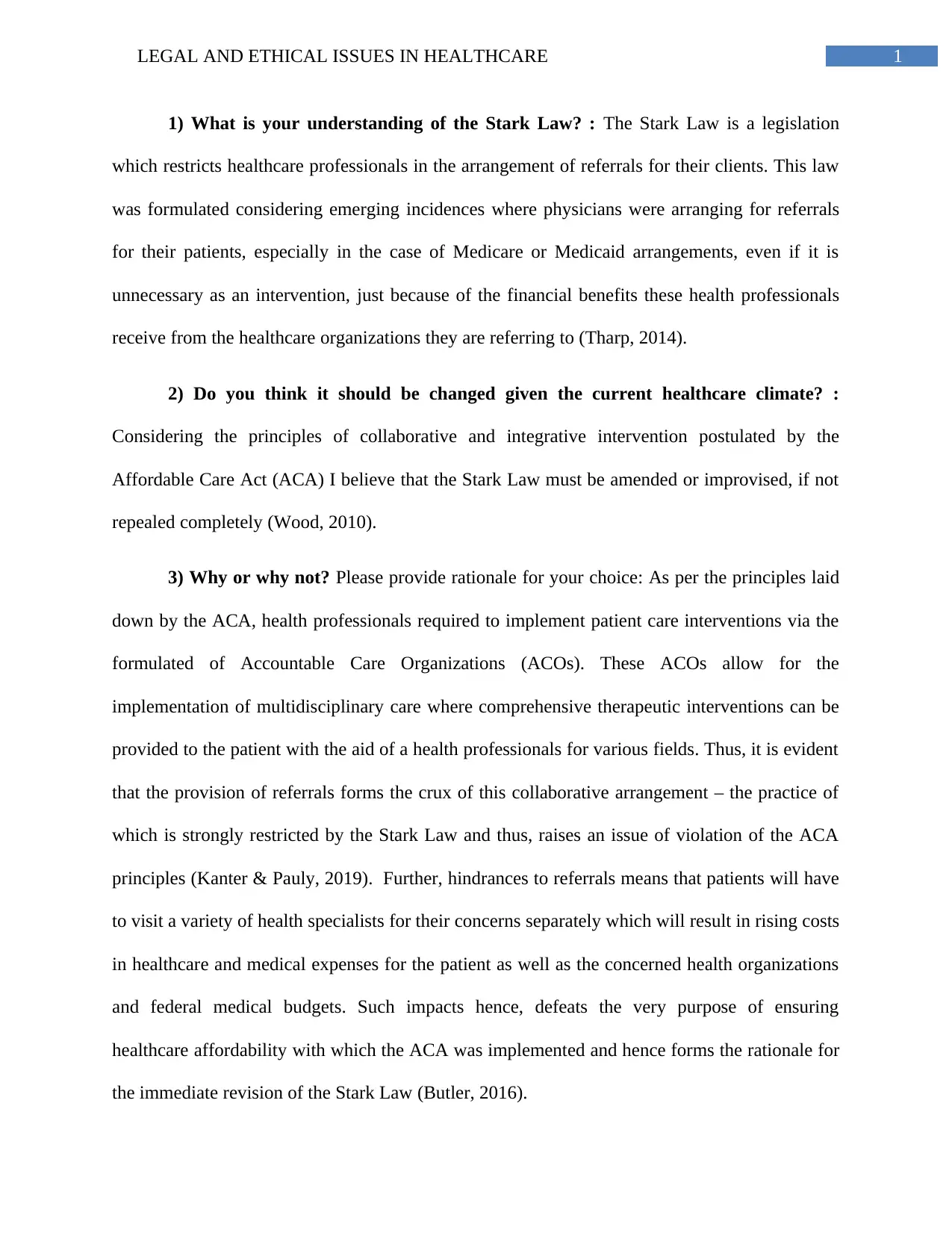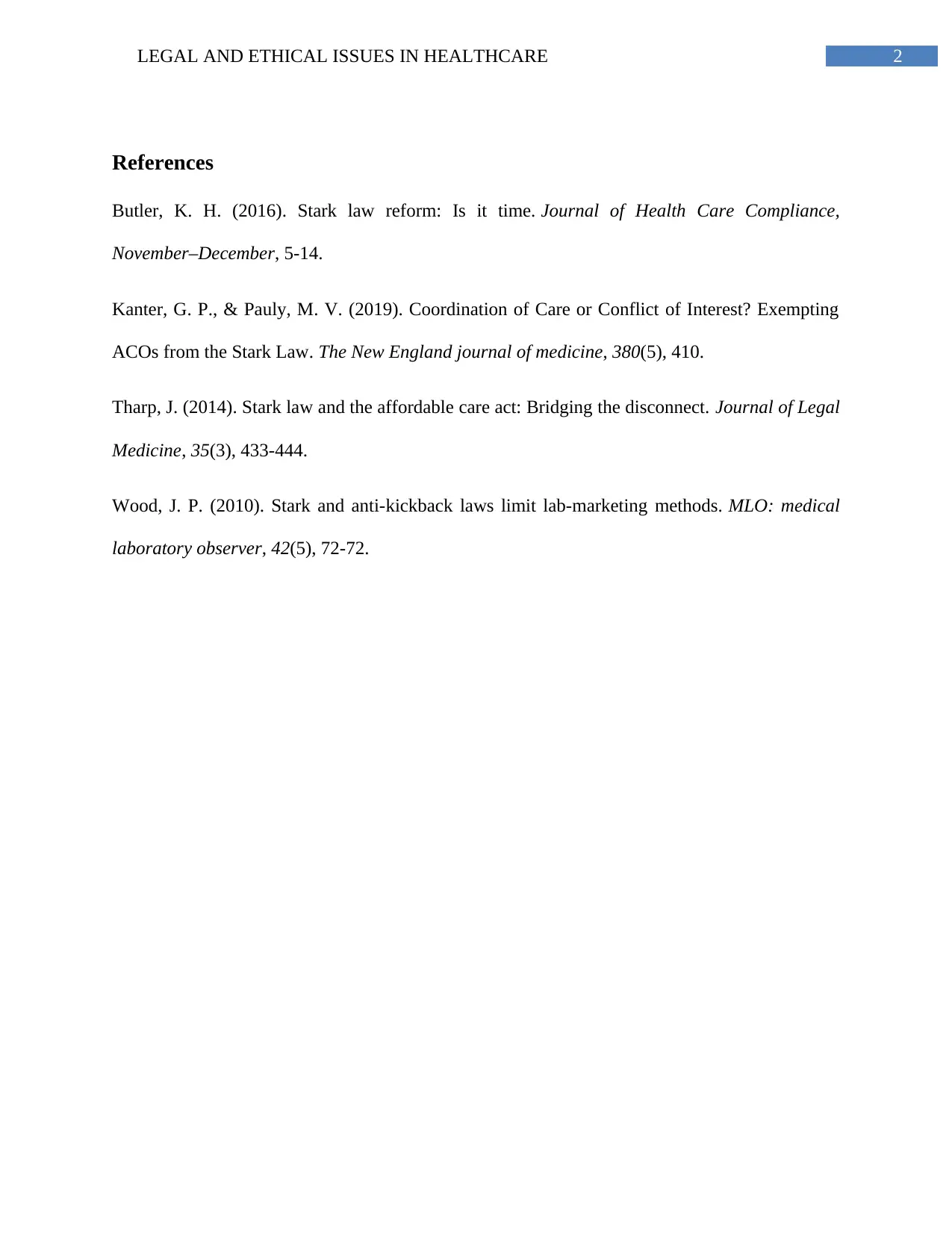Legal and Ethical Analysis of Stark Law in Healthcare
VerifiedAdded on 2022/11/10
|3
|518
|367
Homework Assignment
AI Summary
This assignment examines the Stark Law, a legislation that restricts healthcare professionals from making referrals for their patients, particularly in Medicare and Medicaid arrangements. The student analyzes the law's implications and argues for potential amendments or repeal, considering the principles of the Affordable Care Act (ACA) and the role of Accountable Care Organizations (ACOs). The student contends that the Stark Law may hinder collaborative care models, potentially increasing healthcare costs and contradicting the ACA's goals. The assignment references several sources to support the arguments and conclusions regarding the ethical and legal ramifications of the Stark Law in contemporary healthcare settings. The student emphasizes the need for a revised approach to healthcare referrals to facilitate multidisciplinary care and promote patient well-being within the framework of the ACA.
1 out of 3









![[object Object]](/_next/static/media/star-bottom.7253800d.svg)